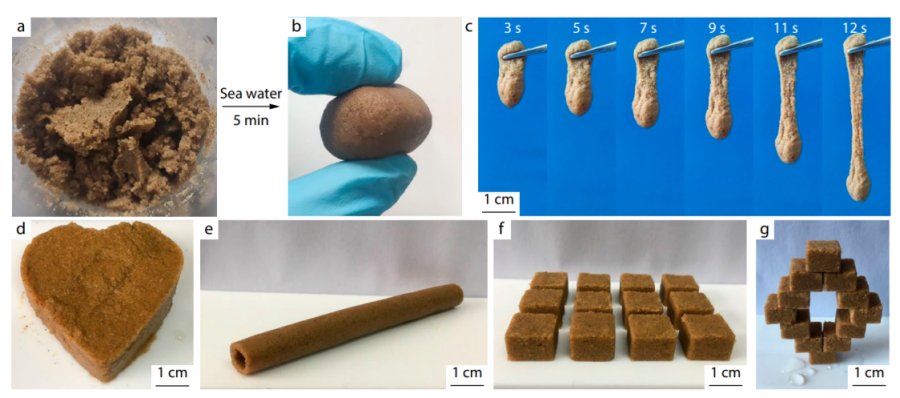
Seawater no match: innovative adhesive succeeds in marine environments
GA, UNITED STATES, December 3, 2024 /EINPresswire.com/ -- Scientists have engineered a cutting-edge underwater adhesive based on a cationic polyelectrolyte, marking a breakthrough in adhesive technology. This innovation effectively counters the high salinity and electrostatic challenges that previously limited the performance of wet adhesives in marine environments.
Traditional wet adhesives struggle in seawater, where high ion concentrations disrupt electrostatic interactions, weakening adhesion and reducing durability. In response, researchers have explored bioinspired approaches, particularly polyelectrolyte (PECHIA) adhesives using phase separation and self-coacervation. However, high-salinity environments demand new strategies to maintain reliable performance. Due to these challenges, advancing adhesives capable of enduring marine conditions remains crucial.
Scientists from Huazhong University of Science and Technology have introduced an adhesive based on cation-dipole interactions that performs exceptionally well in high-salinity seawater. Published (DOI: 10.1007/s10118-024-3141-5) in the Chinese Journal of Polymer Science on May 17, 2024, this study details PECHIA, a specially synthesized PECHIA adhesive that leverages ion shielding and cation-dipole interactions to enhance underwater bonding strength.
PECHIA's core innovation is its use of “cation-dipole” interactions facilitated by an imidazole acetonitrile (IA) unit. When mixed with seawater, PECHIA molecules self-coacervate, forming a dense adhesive phase due to salt shielding that counteracts electrostatic repulsion. This phase separation enhances underwater adhesion, as evidenced by multiple tests. Remarkably, PECHIA achieves tensile adhesion strength of 739 kPa in seawater, a considerable improvement over existing options. The adhesive’s durability through repeated shear and tensile stress cycles highlights its potential for extended underwater use. Further, PECHIA maintains adhesion in both low and high seawater temperatures, a key advantage for diverse marine applications.
Lead author Prof. Qiang Zhao emphasized the adhesive's transformative potential, noting, “PECHIA's resilience in saline and cold conditions positions it as a promising candidate for underwater construction and repair, where reliable adhesion is essential. This innovation extends the application scope of marine adhesives to fields requiring durable wet adhesion.”
The development of PECHIA paves the way for new applications in marine construction, artificial island building, and underwater repair. Its stability in high-salinity and varied temperature conditions supports performance in complex marine settings, setting a new standard for underwater adhesives. Future research aims to broaden its industrial applications, including biomedical and environmental uses where underwater stability is key.
References
DOI
10.1007/s10118-024-3141-5
Original Source URL
https://doi.org/10.1007/s10118-024-3141-5
Funding information
This work was financially supported by the National Key R&D Program of China (No. 2022YFB3805103) and the National Natural Science Foundation of China (No. 22178139).
Lucy Wang
BioDesign Research
email us here
Distribution channels: Chemical Industry, Science
Legal Disclaimer:
EIN Presswire provides this news content "as is" without warranty of any kind. We do not accept any responsibility or liability for the accuracy, content, images, videos, licenses, completeness, legality, or reliability of the information contained in this article. If you have any complaints or copyright issues related to this article, kindly contact the author above.
Submit your press release
